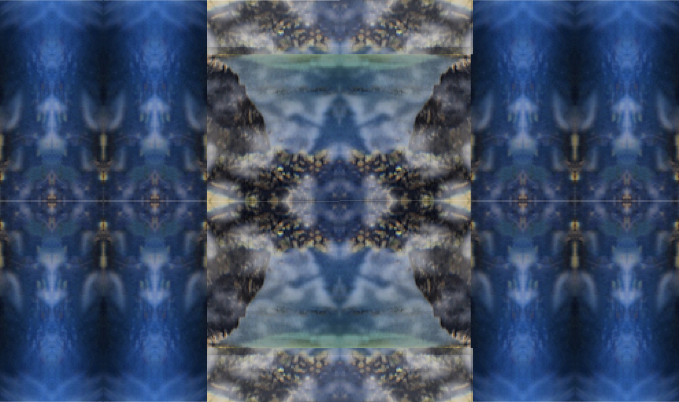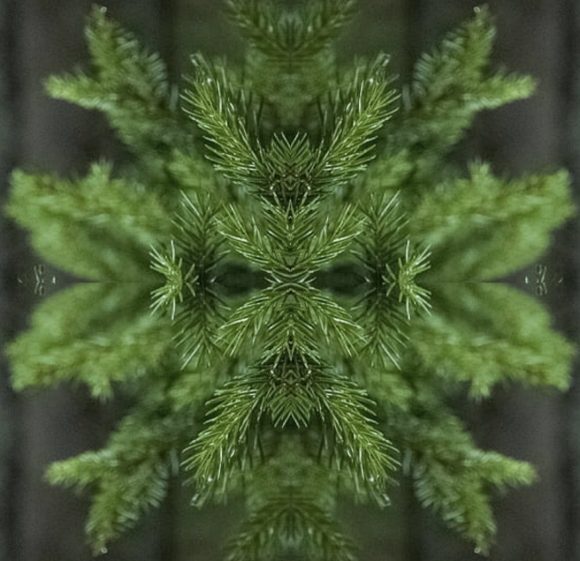What is the difference between mysticism and empiricism?

1. The bedrock of both mystical and empirical thinking is experience. Both rely on some recorded or remembered bits of experience as starting points, and both would go back to experience in order to validate ideas, to confirm theories, and to devise their practical applications — some kind of coherence and consistence with experience is what both the mystic and the empiricist fundamentally require.
For the empiricist, experience can play this role only if it is stable and repeatable: anyone must be able to go through the experience again and again. Something that happened only once, and then was never observed again, would not do; something that only a particular person can see, and no-one else, is not useful. For the empiricist, this follows from the role experience is supposed to play in confirming ideas and producing reliable applications. (The scientific method as it has developed over the past few centuries is a particularly refined version of the empiricist view; but there have been other forms of empiricism even before it was developed.)
The mystic’s experience, on the other hand, must be deep and meaningful — it must have an impact on the soul. It must be capable of stirring affect — move us emotionally; open unseen views — fire up the creative spirit; provide a larger perspective — make sense of our place in the world. Consequentially, such experience is unique and personal, and perhaps by definition also rare and even singular. For the mystic, this alone is the mark of something really valuable, something that is worth remembering and all the work of putting it into words in order to bring it back into the ordinary world. (We often think of mysticism as a strand inside religions, but the same could be said about an artist who has an inspirational experience, and then works hard to bring a painting or a piece of music into existence which reflects their unique and personal, inspirational, experience.)
The difference between mysticism and empiricism, then, is in the kind of experience they would accept as basis of their view. The empiricist looks for stable and repeatable experience, the mystic for unique and meaningful experience.
2. When in conversation with each other, mysticism and empiricism can be prone to misunderstandings. These result from their apparent agreement: they both think that ‘experience’ should be the cornerstone of their views, and if there are open questions or conflicts of opinion, they would go back to the foundations and let experience decide. (In this they differ from other types of view, i.e. neither mystic nor empirical ones, which would go back to something else; e.g. rationalists who would trace everything back to axioms, self-evident first principles, or the like.)
But the agreement is only apparent. In reality, what the mystic points to as their foundational ‘experience’ would be, for the empiricist, not even ‘experience’ at all: it is purely subjective, cannot be repeated (let alone verified by someone other than the mystic). And the ‘experience’ that is the basis of any empiricism is disregarded by the mystic as distinctionless — meaningless. Thus the frustrated objections, from empiricists over the centuries, against mystics as being “unable to prove” their claimed experiences even existed, and the stubborn claims of mystics (or, more often, their followers) that “there are things that cannot be explained” by science (today) or “your philosophy, Horatio”, of course.
3. Sometimes mystics mistake themselves for empiricists. When Jung notes that
Die naturwissenschaftliche Fragestellung zielt auf regelmäßige und, soweit sie experimentell ist, auf reproduzierbare Ereignisse. Damit fallen einmalige oder seltene Ereignisse außer Betracht.
Scientific inquiry targets regular and, insofar [the inquiry] is experimental, reproducible events. This excludes singular or rare events from consideration.
GW VIII, § 821.
he states a basic principle of empiricism. This priniciple is necessary for empirical science to function: it is what excludes arbitrariness and random errors.
Then, however, Jung goes on to treat it as a shortcoming: he thinks that valuable information and insight is lost. The result is “a partial view which leaves amiss all those actually not unimportant aspects that cannot be covered statistically” [“eine […] Teilansicht, welche alle jene durchaus nicht unwichtigen Aspekte, die statistisch nicht erfaßbar sind, vermissen läßt.”, ibd.].
Now Jung is surely right that there are certain — singular, unique, rare, personal — experiences in our lives which need meaningful explanation. But he is mistaken to require objective, empirical science to inquire into them. The explication of unique experiences is more akin to what I have dubbed mysticism, and historically, the most insightful explications of such experiences are markedly different from the observation of stable, reproducible events and the theory-formation that goes on in scientific research. (Some of Jung’s own texts are even examples of that.) The latter is, by definition, not suited to what Jung has in mind, and trying to assimilate both, as he does in the synchronicities essay, is not a promising (in fact, is hardly an intelligible) strategy for bringing out the insights into special experiences he was looking for.




[…] (Note, however, that what makes something a pattern is usually in the eyes of the beholder. Different people may perceive different patterned structures in events. “Seeing patterns” is a form of interpretation, and there are always infinitely many interpretations of the same factual material. Jung tended to view his own interpretations as “obvious”, and those of others, when they diverged, as “prejudiced”. This makes his views no less fascinating, but we must be aware that they express his personal convictions, not a verifiable empirical account, as he sometimes claims. When Jung says “experience shows that …”, he wants this to have the force of established empirical fact, but in truth the “experience” in question is more often than not merely his own subjective, albeit powerfully “numinous”, experience. He frequently trades on an equivocation when he invokes “experience”.) […]